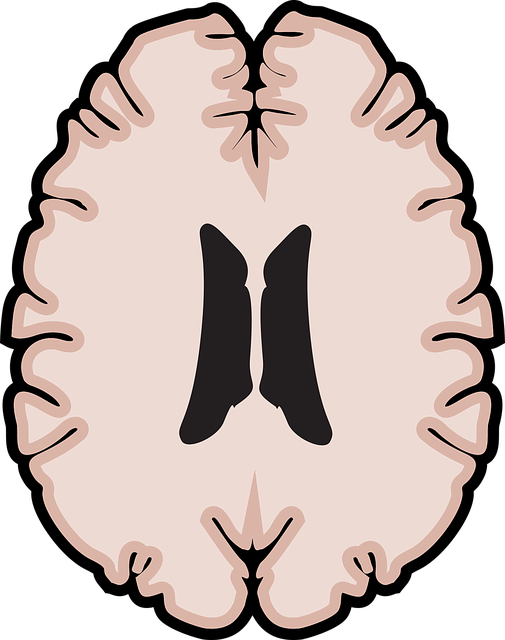Broomfield Pain Management Therapy tackles the complexities of mental illness diagnosis by combining comprehensive assessments, healthcare provider burnout prevention, coping skills development, and compassion cultivation. They leverage technology, including AI algorithms and data analytics, to uncover subtleties missed in traditional methods, enhancing diagnostic accuracy especially for complex conditions. Integrating patient feedback through personalized approaches improves diagnosis accuracy by tailoring treatments to address both physical and emotional aspects of conditions like chronic pain. Their multifaceted approach emphasizes advanced training, evidence-based interventions, effective communication strategies, and community outreach programs to reduce stigma, ultimately benefiting patients and providers with improved diagnosis accuracy.
Mental illness diagnosis accuracy is a critical aspect of healthcare, often influenced by complex factors. This article explores strategies aimed at enhancing diagnostic precision, delving into the challenges faced by healthcare professionals. We discuss the integration of technology and advanced tools, emphasizing their role in improving outcomes, especially relevant in Broomfield Pain Management Therapy settings. Additionally, patient feedback and individualized approaches are explored as key components to refine diagnosis processes. Lastly, we highlight the importance of training and support for healthcare providers.
- Understanding the Challenges of Mental Illness Diagnosis
- The Role of Technology and Advanced Tools in Improving Accuracy
- Integrating Patient Feedback and Individualized Approaches
- Training and Support for Healthcare Professionals: A Comprehensive Strategy
Understanding the Challenges of Mental Illness Diagnosis

Diagnosing mental illness accurately is a complex process, often shrouded in challenges that can impact patient care and outcomes. The vast spectrum of disorders, from depression and anxiety to more severe conditions like schizophrenia or bipolar disorder, presents a diverse set of symptoms that can overlap, making differentiation difficult. This complexity is further exacerbated by the fact that mental health issues are frequently accompanied by comorbid physical ailments, adding another layer of complexity to the diagnostic process.
Broomfield Pain Management Therapy recognizes these challenges and emphasizes the importance of comprehensive assessments that go beyond surface-level symptoms. They advocate for integrating burnout prevention strategies for healthcare providers, as fatigue and cynicism can cloud judgment. Additionally, coping skills development and compassion cultivation practices are encouraged to foster a more empathetic environment, ensuring patients feel heard and understood during their journey towards healing.
The Role of Technology and Advanced Tools in Improving Accuracy

In the pursuit of enhancing mental illness diagnosis accuracy, technology and advanced tools have emerged as powerful allies for healthcare professionals. Integrating innovative solutions like artificial intelligence (AI) algorithms and sophisticated data analytics enables more precise assessments and personalized treatment plans. These tools can sift through vast amounts of patient data, including medical history, symptoms, and behavioral patterns, to identify subtleties that might be missed through traditional methods. For instance, AI-driven platforms can analyze language patterns in therapy sessions or detect changes in mood and behavior over time, thereby improving diagnostic accuracy, especially for complex conditions.
Furthermore, the role of technology extends beyond diagnostics to support ongoing treatment and self-care practices. Mindfulness Meditation, a therapeutic technique gaining traction in Broomfield Pain Management Therapy, can be easily accessible through apps that guide users through calming exercises. Similarly, Self-Care Routine Development for Better Mental Health is facilitated by digital platforms offering tailored recommendations based on individual needs. Encouraging emotional intelligence through tech-driven resources empowers individuals to better understand and manage their mental health, contributing to improved diagnostic outcomes in the long run.
Integrating Patient Feedback and Individualized Approaches

Integrating patient feedback into mental health care practices has emerged as a powerful tool to enhance diagnosis accuracy. By actively involving individuals in their treatment and taking into account their unique perspectives, healthcare providers can tailor their approaches to better fit individual needs. This personalized approach is particularly beneficial for conditions like chronic pain, where the experience of suffering is deeply subjective. For instance, Broomfield Pain Management Therapy has seen success by encouraging patients to express their feelings and concerns openly, allowing therapists to create specialized treatment plans that address both physical and emotional aspects of pain management—a key element in improving diagnosis accuracy.
Emotional regulation strategies, grounded in mind over matter principles, play a crucial role in this individualized framework. By teaching patients to manage their emotions effectively, healthcare professionals can reduce the risk of misinterpreting symptoms or attributing them to unrelated mental health concerns (Risk Assessment for Mental Health Professionals). This not only improves diagnostic clarity but also fosters a deeper patient-provider connection, leading to more effective treatment outcomes.
Training and Support for Healthcare Professionals: A Comprehensive Strategy

Improving mental illness diagnosis accuracy requires a multifaceted approach, and one key component is enhancing training and support for healthcare professionals. Broomfield Pain Management Therapy recognizes the importance of empowering practitioners with the latest knowledge and skills to navigate the complex landscape of mental health assessment. This strategy involves intensive workshops and ongoing educational programs that cover advanced diagnostic techniques, evidence-based interventions, and effective communication strategies.
By fostering a culture of continuous learning, healthcare professionals can better understand the nuances of various mental disorders, including subtle presentations and comorbidities. Additionally, incorporating self-awareness exercises into training enables practitioners to recognize their own biases and maintain objectivity during diagnosis. The implementation of community outreach programs, coupled with stigma reduction efforts, further strengthens this comprehensive strategy, ensuring that both patients and healthcare providers benefit from improved mental illness diagnosis accuracy.
Mental illness diagnosis accuracy has long been a complex issue, but with concerted efforts integrating technology, patient feedback, and comprehensive training, significant improvements are within reach. By leveraging advanced tools like data analytics and digital health platforms, healthcare professionals can gain deeper insights into patient experiences. Encouraging open communication and tailoring treatments to individual needs ensures more effective outcomes. Moreover, robust training programs that focus on continuous learning and support for providers, akin to what Broomfield Pain Management Therapy models, are crucial for maintaining high standards of care. These collective strategies not only enhance diagnosis accuracy but also foster a more compassionate and successful journey towards mental well-being.














